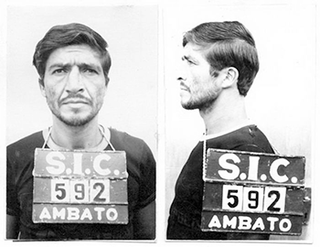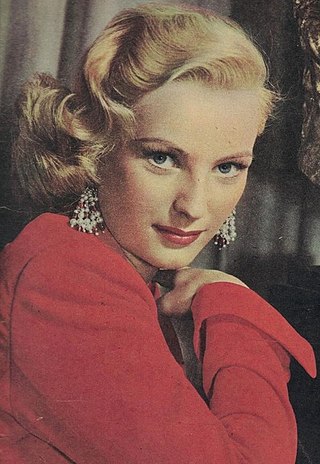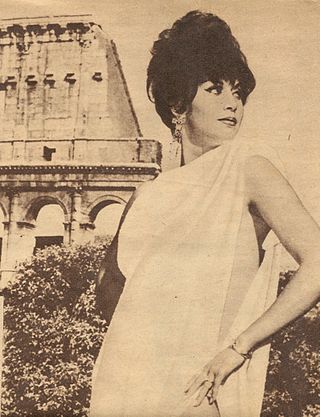
Jiří Menzel was a Czech film director, theatre director, actor, and screenwriter. His films often combine a humanistic view of the world with sarcasm and provocative cinematography. Some of these films are adapted from works by Czech writers such as Bohumil Hrabal and Vladislav Vančura.

Pedro Alonso López, also known as The Monster of the Andes, is a Colombian serial killer, child rapist, and fugitive who murdered a minimum of 110 people, mostly young women and girls, from 1969 to 1980. López claimed to have murdered over 300 people. He is considered by many as one of the most prolific serial killers and rapists in history.

Antonio Cánovas del Castillo was a Spanish politician and historian known principally for serving six terms as prime minister and his overarching role as "architect" of the regime that ensued with the 1874 restoration of the Bourbon monarchy. He was assassinated by Italian anarchist Michele Angiolillo.

Los Auténticos Decadentes is an Argentine band that mixes ska with Latin American rhythms. The band was formed around the year 1986 by Cucho and Nito, who invited Gastón to join them.
Jaime Fernández Reyes was a Mexican actor. Over his career, he won 3 Silver Ariel awards — the Mexican equivalent of the Oscar — including one for what is arguably his best-known role, playing Friday, the protagonist's associate in Luis Buñuel's Robinson Crusoe. He appeared in over 200 films and served as the general secretary of the National Association of Actors (ANDA) for 11 years. His father was actor/director Emilio Fernández.

Miroslava Šternová, known professionally as Miroslava Stern, was a Czechoslovak-Mexican actress.

Narciso Ibáñez Menta was a Spanish theatre, film, and television actor.
Horror films in Mexico form part of cinematic arts and culture of Mexico.

El Castillo de los monstruos is a 1958 Mexican horror comedy directed by Julián Soler.

Ana Bertha Lepe Jiménez was a Mexican actress and beauty pageant titleholder. In 1953 she was crowned Señorita México and the third runner-up at the Miss Universe 1953.

Luis Sandrini was a prolific Argentine comic film actor and film producer. Widely considered one of the most respected and most acclaimed Argentine comedians by the public and critics. He made over 80 appearances in film between 1933 and 1980.
El Castillo de los Monstruos may refer to the following films:
Daniel Nuñez Hernandez, better known by his ring name Cancerbero, is a Mexican luchador, currently working for the Mexican wrestling promotion Consejo Mundial de Lucha Libre (CMLL). Cancerbero is a member of Los Cancerberos del Infierno, under the leadership of Virus. Cancerbero previously worked as Messala for many years, forming the team Los Romanos along with Caligula. The name Cancerbero is Spanish for Cerberus, the three-headed hound, which according to Greek mythology, guards the entrance to Hell.
Santiago Eduardo Urueta Sierra, more commonly known as Chano Urueta, was a Mexican film director, producer, screenwriter, and actor.
Carlos Orellana Martínez was a Mexican actor, film director and screenwriter.

Silvia Solar was a French actress and prolific minor star in Spanish cinema. The majority of her appearances were in the 1960s and 1970s.

Javier Tomeo was a Spanish (Aragonese) essayist, dramatist, and novelist.
Manuel Zeceña Diéguez (1918-1991) was a Guatemalan film producer, director and writer. As a producer, his work commenced in 1954 with De ranchero a empresario. In the early 1960s he produced Pecado, Paloma herida and Me ha gustado un hombre. As a director he worked on Amor en las nubes which was released in 1968, El deseo llega de noche in 1969, Mi mesera in 1973 and the ill-fated The Hughes Mystery which was released in 1979. The majority of his films were made in Mexico and he worked with prominent Mexican actors and filmmakers.
Alfredo Ruanova, was an Argentine writer, screenwriter and film producer.










